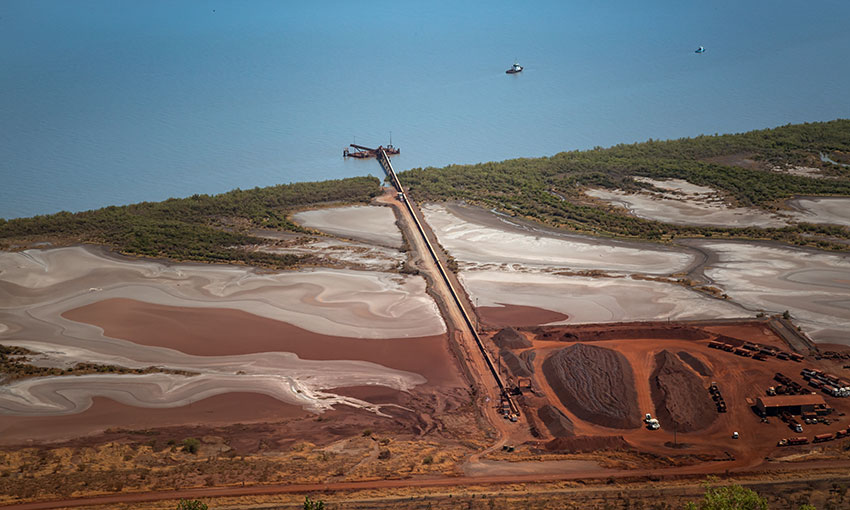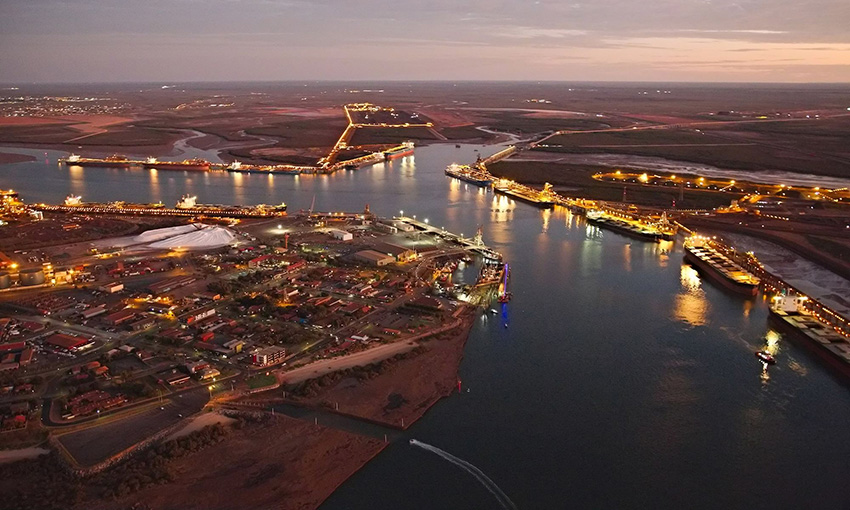A SPOKESPERSON for the Department of Infrastructure, Transport, Regional Development, Communications and the Arts told DCN the government is aware of and monitoring the flooding situation in the east Kimberley and would consider a Section 11 exemption “if necessary”.
“There are currently no outstanding licence applications or a request for a Section 11 exemption to ship goods to the Port of Wyndham to address the current flooding situation,” the spokesperson said.
Yesterday (8 March) Senator Bridget McKenzie called on the government to issue a Section 11 exemption to the Coastal Trading (Revitalising Australian Shipping) Act 2012 to allow international ships to carry interstate domestic cargo.
Overland routes to the east Kimberley region from the Northern Territory have been cut off since last week when flooding closed the Victoria Highway. Also, the main route to west Kimberly has been cut at Fitzroy Crossing since flooding in January.
Local media has reported there has been no fresh food delivered to the east Kimberley in days and grocery store shelves are empty. However, ADF aircraft are expected to bring food into the area, and a barge with supplies is also expected to arrive from Darwin on Thursday.
In a radio interview with ABC Pilbara, minister for infrastructure, transport, regional development and local government Catherine King said if asked, she would consider an exemption.
“I don’t have a request before me at the moment to issue licences to international ships and I’ll leave it to the WA government to work through, which they’re doing. In terms of the barge service, that’s already providing fresh fruit and vegetables.
“But this is the problem we’ve got, that I find it pretty bizarre that we don’t have Australian ships actually running along our coast being able to actually be called on to actually do that,” Ms King said.
“And that’s because we’ve had a decade of the Liberal National Party basically driving Australian ships away from this country and we don’t have that many flag vessels. It’s why we’re establishing a strategic fleet for exactly these tasks and for these purposes to be able to call on in times of emergency.”
Prime Minister Anthony Albanese, in his second reading speech for the Coastal Trading (Revitalising Australian Shipping) Bill 2012 (he was then minister for infrastructure and transport), said, “In the past decade the Australian fleet has gone from 55 ships to 21”.
According to the Bureau of Infrastructure and Transport Research publication Australian Sea Freight 2020-21, there were just 11 major active Australian-registered ships as of 30 June 2021, nearly a decade after the Coastal Trading Act became law.
The Strategic Fleet
The spokesperson from the Department of Infrastructure, Transport, Regional Development, Communications and the Arts said the government is committed to rebuilding Australia’s shipping capabilities and ensuring a resilient maritime industry.
“That’s why we’ve appointed a taskforce to guide the establishment of Australia’s Maritime Strategic Fleet, which will help secure supply chains and enhance our national security by increasing the number of Australian ships,” the spokesperson said.
“More Australian ships, including coastal vessels that operate under General Licence, means more Australian capability to move essential cargo in emergencies.”
The Strategic Fleet Taskforce was announced back in October 2022 and is due to hand in its final report to the government by 30 June 2023.
In February the taskforce has entered “phase two”, in which it is to develop options on how to establish the fleet.





